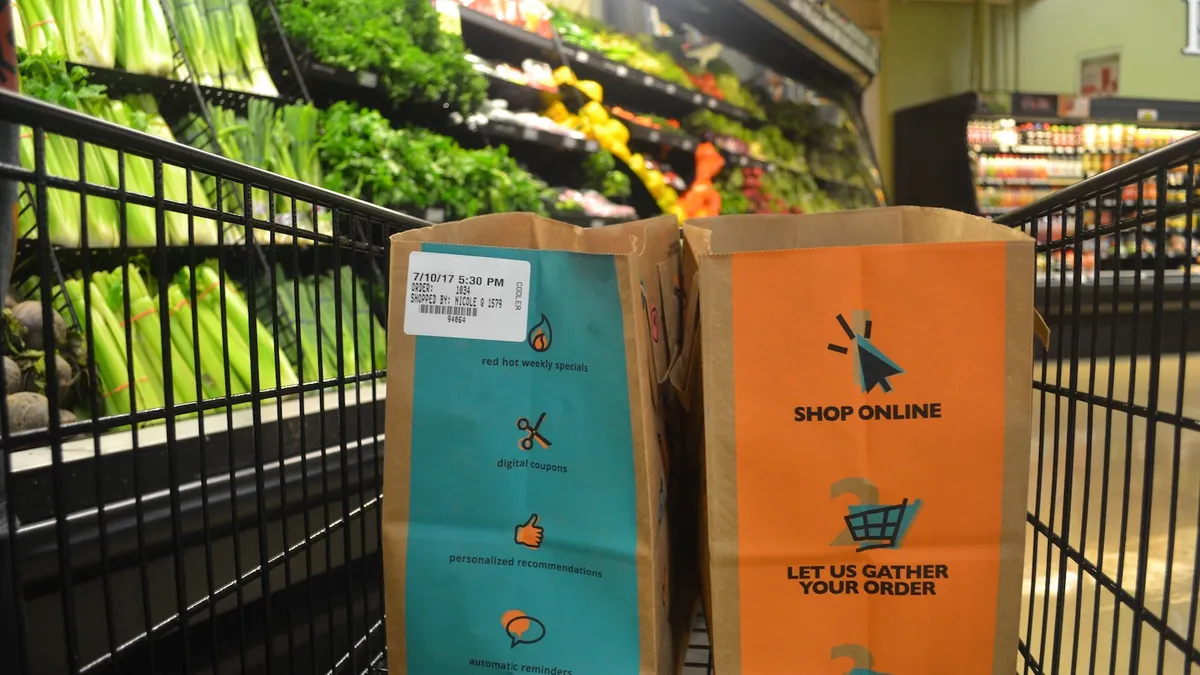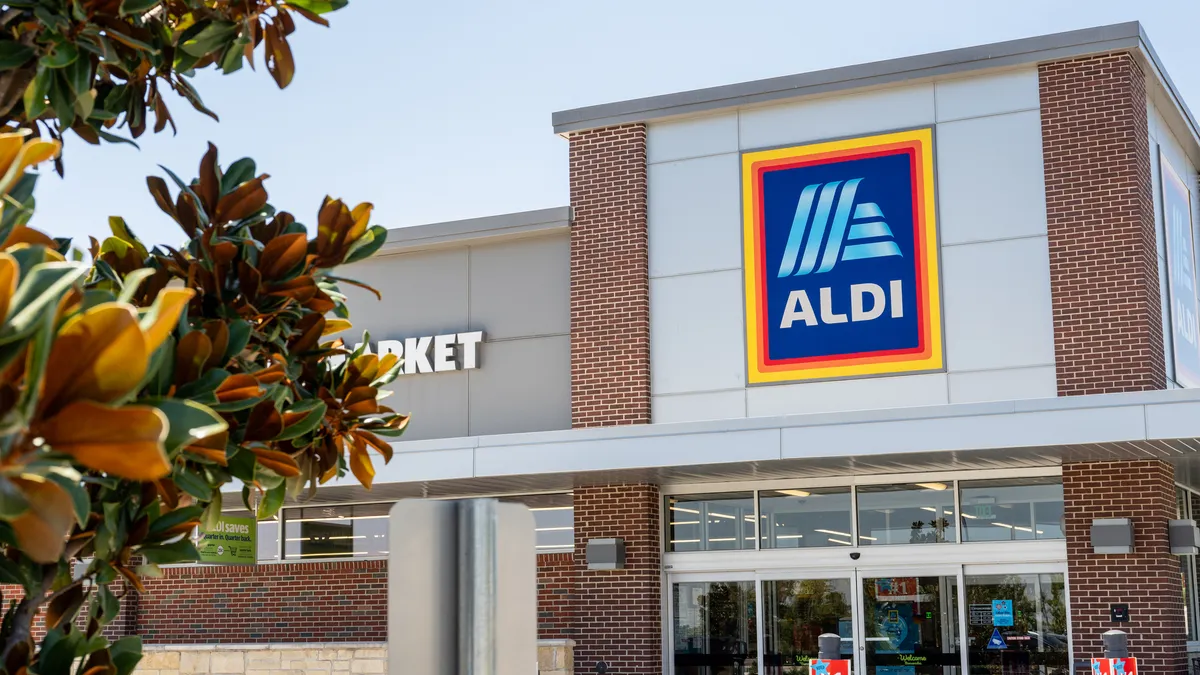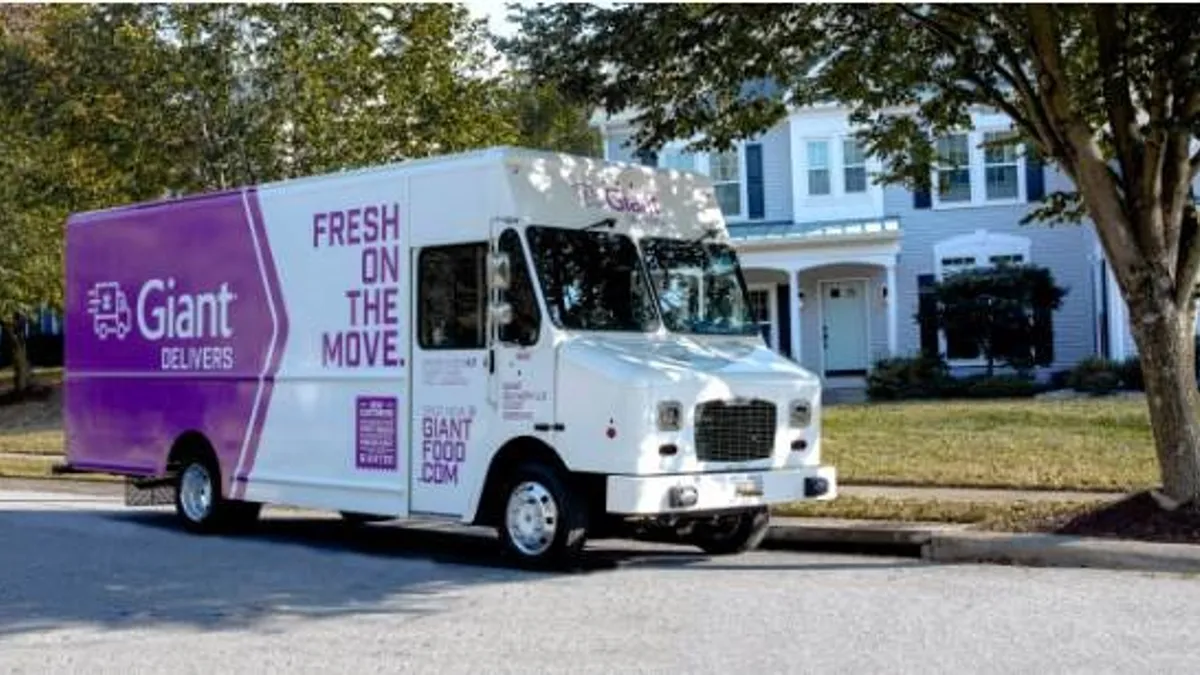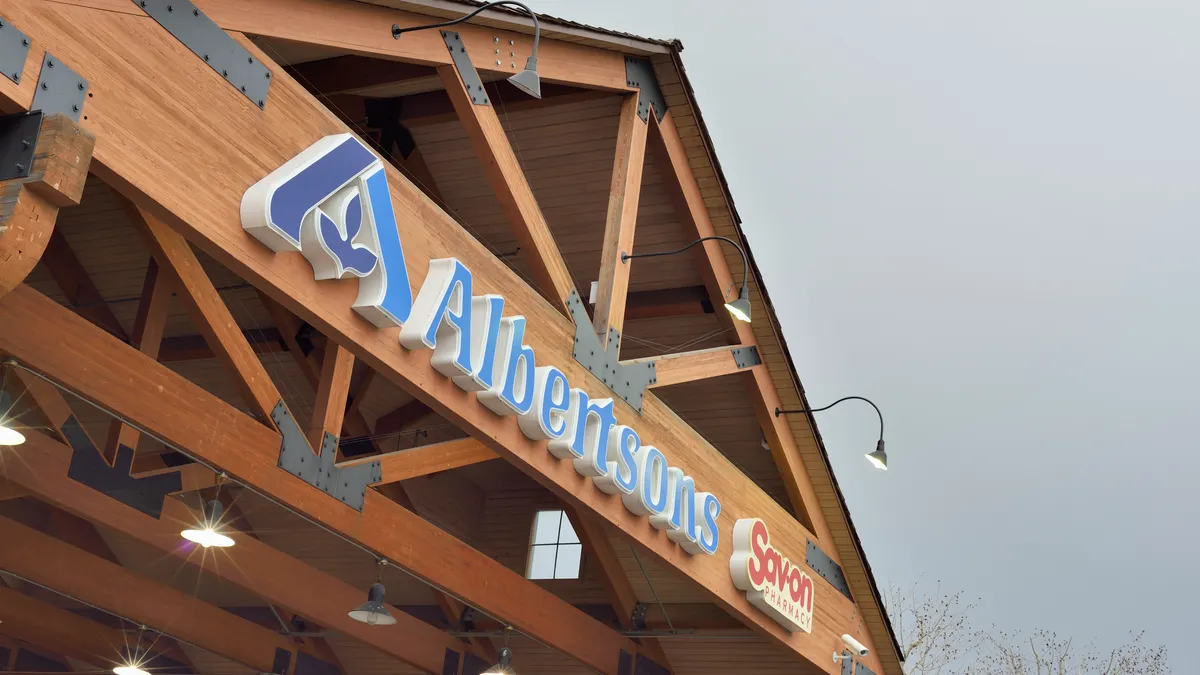As retailers eye new ways of locking in loyalty among a consumer base that has dramatically shifted to digital shopping, many are looking to membership programs that offer unlimited delivery or pickup for a fixed fee.
Kroger and Albertsons are both offering unlimited-delivery subscriptions, while SpartanNash has a pickup program that offers no-fee fulfillment for just under $50 a year. Last week, Ahold Delhaize announced it will launch a subscription program with The Giant Company, its Carlisle, Pennsylvania-based banner, starting next year.
These programs promise to secure loyalty among consumers that are spending on average $95 per order, according to Brick Meets Click. They’re also a competitive response to Amazon, which is offering steep discounts through its Prime program as it flexes its muscles in grocery, as well as Walmart, which earlier this year rolled out Walmart+, a membership program that offers mobile scan-and-go and fuel discounts in addition to unlimited no-fee delivery.
"The industry is getting pushed in this direction," said James McCann, a former CEO of Ahold USA who now serves as an investor and advisor to companies like Takeoff Technologies and Afresh. "I think it's going to become a big part of the game plan at all the major grocers."
Kroger’s $79 annual subscription program, Delivery Savings Pass, waives the $10 delivery fee the company normally charges for delivery, but applies only to orders of $35 or more. The program is currently being tested at Kroger stores in Dallas and at Ralphs locations in the Los Angeles area.
Albertsons, meanwhile, has rolled out Unlimited Delivery Club, which is available for $99 a year or $15 a month and is eligible for orders over $30. Launched last year, the program is now available in markets where Albertsons operates its own delivery service, including Southern California, Phoenix and Chicago. The subscription waives fees on pickup orders and also applies to a 2-hour delivery service the grocer is currently testing in the Chicago area.
"More customers have engaged in the service and we’re featuring it more prominently when a customer is completing a delivery order with us to drive awareness," an Albertsons spokesperson said in an email.
SpartanNash, which operates 155 stores under several Midwest banners, offers a subscription option under its Fast Lane pickup program for $17 per month or $49 per year.
In its announcement of The Giant Company’s subscription program, parent company Ahold Delhaize said the service will cost less than $100 annually and offer an "improved value proposition and preferential delivery time slots, driving increased loyalty and engagement." A spokesman for the company declined to provide further information.
Taking advantage of 'subscription culture'
One challenge for retailers is convincing consumers — many of whom juggle numerous other paid programs — to fork over more cash. A 2018 survey of 2,500 consumers revealed they spent on average nearly $240 a month on subscription services. But grocers have the advantage of being an essential service as well as having longstanding relationships with many of their customers, said Gary Hawkins, CEO of the Center for Advancing Retail & Technology, which provides education and consulting services for retailers.
Today’s shoppers also see a lot of value in the set-it-and-forget-it nature of paid membership programs, said Jordan Berke, founder of Tomorrow Retail Consulting and a former Walmart executive.
"I have been very amazed at what I would call the subscription culture that has emerged with consumers, where they prefer a subscription model for experiences that remove friction from their lives," said Berke, who has researched subscription models for retailers. "They love to pay to free the mental load."
As more and more retailers add online subscriptions, however, the offers become less unique and appeal primarily to grocers’ most loyal online shoppers — who may already be happily paying per-order fees, McCann said.
"It's a defensive move because it stops existing loyal shoppers from going and shopping with someone else," he noted.
E-commerce subscriptions are also having to compete with memberships from third-party partners like Instacart, Shipt, Uber and DoorDash, which have soared in popularity during the pandemic and arguably offer more value for shoppers’ money. Hawkins said his wife recently purchased an annual Instacart membership, and values being able to shop from multiple retailers and not pay any additional fees.
"There's a growing number of drugstores and other retailers that she can now order from through Instacart and get those products delivered," he said. "So it's become really convenient, and I've seen her buying behavior change dramatically."
Berke said memberships from companies like Instacart, which powers ordering technology, picking and delivery for hundreds of chains, represent a "conflict point" for retailers in their quest to establish membership programs.
Jason Goldberg, a retail analyst who is chief commerce strategy officer at Publicis, an advertising firm, singled out Kroger’s unlimited delivery program as misguided because it competes with the $99-per-year membership program from Instacart, which fulfills Delivery Savings Pass orders.
"That's not a customer-acquisition strategy," said Goldberg. "It's not going to bring new people to your brand, and it's just not going to reach super deep into your customer base."
The third-party conflict plays into the escalating debate over ownership of e-commerce. While firms like Instacart and Shipt control a sizable portion of customer ordering and fulfillment operations on behalf of retailers, the pandemic has pushed grocers to establish more control over their backend operations and push more shoppers through their company apps and websites.
Asked whether memberships from third-party firms are limiting the growth of its delivery subscription program, a Kroger spokesperson would only confirm that Instacart "powers" its service and pointed to the company's recent digital growth.
Albertsons' Unlimited Delivery Club doesn't rely on Instacart's platform and workers, but the tech firm still operates in many of the same markets and fulfills orders from the grocers' stores. Albertsons downplayed any impact Instacart's membership has had on its own program.
"We have still been able to grow it and will continue to find ways of differentiating our offering to others in the market," the spokesperson for the grocery chain said.
Kroger Fresh Life? Albertsons+?
For an e-commerce membership program to succeed, grocers need to carefully mine shopper data and target those customers that aren’t quite brand loyalists, but that could become ones if enticed to sign up, McCann said. Retailers will likely end up losing money on delivery fees from online brand devotees who enlist in the program, he said, though it would all but guarantee their continued fealty.
Hawkins, meanwhile, noted that any grocer establishing an e-commerce membership program has to first make sure their delivery program, and potentially their pickup service, too, is strong.
"I don’t think a subscription program can be a miracle worker," he said. "They first have to have that strong core proposition."
And that still may not be enough. Experts noted that while delivery- and pickup-centric memberships can be powerful, reaching down the customer ladder to secure semi-loyal shoppers and entice new ones will require grocers to add perks to their membership programs.
Hawkins, who has designed loyalty programs for grocers, said companies have for years weighed adding extras like free movie tickets, discounts at non-competing retailers and access to culinary events to complement their points-and-discounts driven loyalty schemes. With Walmart+ and Amazon Prime exerting so much influence over customers’ lives, not to mention retailers that require customers to be members, like Costco and BJ's Wholesale Club, companies need to at least research membership programs that leverage their unique assets, he said.
In doing so, grocers risk copying Prime and Walmart+, Goldberg noted. "The thing that's not gonna work is to try to do a me-too version of your competitors' membership services that are substantially broader in scope," he said.
But grocers can get creative and leverage assets that are core to their stores and brand identities. Berke said Kroger could channel its "Fresh for Everyone" marketing platform into a "Fresh Life" membership that includes livestreamed cooking classes and fitness memberships. Grocers could offer free fruit and vegetable prep in stores, free coffee fill-ups, first access to exclusive products and host a range of in-store events, sources said.
"I don't think a subscription program can be a miracle worker. They first have to have that strong core proposition."

Gary Hawkins
CEO, Center for Advancing Retail & Technology
Hawkins sees membership benefits falling into three categories: financial discounts, special services and experiences. The latter category could include special wine tastings for members and trips to a local vineyard.
"This is a place where retailers can and should get really creative," he said.
Regional and small-scale grocers may be forced into this platform model, since online perks alone may come too late and pale in comparison to what larger competitors offer, said Goldberg. However, smaller grocers tend to have loyal shoppers and community connections that could translate into compelling membership programs. For example, Heinen’s, which operates 23 stores across Ohio and Illinois, is in the process of implementing a nutrition-focused membership program that includes wellness centers and personalized diet plans for members.
Hawkins said some regional grocers are currently working on membership programs that would include discounts at non-competing retailers like hardware stores and pharmacies. He declined to name the retailers. He also noted that micro-fulfillment hubs from the likes of Fabric could hold inventory from complementing retailers that could let customers cross-shop online.
McCann said membership models could eventually replace loyalty programs or at least be offered as an enhancement under existing loyalty models. He noted that he weighed the membership model during the nearly four years he spent leading Ahold USA before leaving the company following its merger with Delhaize Group in 2016.
"There’s the advent of Prime and then Walmart going into the same thing, and by the way Costco and BJ’s are already doing it. That’s already so much of the U.S. grocery market, but I think that it becomes compelling that you need to do this both defensively, with your most loyal shoppers, and offensively to grab more volume," McCann said.

















